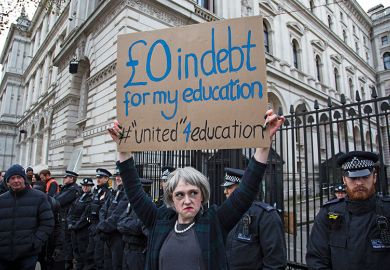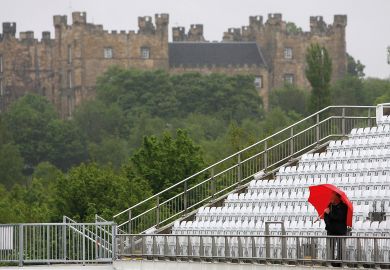Elite universities must do more to admit students from poorer backgrounds, England’s higher education access watchdog has warned.
While universities spent almost £750 million on initiatives to increase the numbers of disadvantaged students in higher education in the last academic year, the Office for Fair Access said that there is “still need for further, faster progress” to improve access to the most highly selective institutions.
Young people from the poorest fifth of neighbourhoods are still six times less likely to enter a highly selective university than those from the richest 20 per cent of areas, Offa explained in its analysis of sector outcomes, which was published on 29 June.
Some universities within the 24-strong Russell Group of research-intensive universities have even gone backwards on some measures of university access relating to poorer students, according to figures published by Offa in its report, titled Outcomes of access agreement monitoring for 2015-16.
About one in five targets related to admitting students from poorer households or neighbourhoods was missed by institutions, Offa said.
Sarah Stevens, head of policy at the Russell Group, said it was “positive” that institutions were meeting many of their targets, but she added that “there is more to be done”.
“Russell Group universities are investing significantly in widening access, nearly doubling funding over the last five years for scholarships, fee waivers, bursaries and outreach activities aimed at the most disadvantaged,” she said.
However, Sir Peter Lampl, founder of the Sutton Trust, said that the latest Offa report “highlights the continuing access challenges at our most selective universities”.
“Despite £725 million being spent on access initiatives, progress is still slow on access and retention for low- and moderate-income students,” said Sir Peter.
Introducing the Offa report, Professor Ebdon also highlighted his “grave concern” about the sector’s failure to increase numbers of mature and part-time students.
“Little or no progress has been made against a substantial proportion of targets for mature and part-time students – this is unacceptable,” said Professor Ebdon.
He also flagged the fact that dropout rates for mature students were twice as high as those for younger ones.
“When mature students do get the right support to enter and complete their courses, they typically achieve good results and go on to good jobs, so it is a terrible waste of talent,” he said.
The Offa report also highlights the dramatic fall in mature students in recent years, with entrant numbers almost halving from about 340,000 in 2009-10 to roughly 175,000 in 2015-16. Part-time student numbers have fallen even more dramatically over this period, down from about 270,000 entrants in 2009-10 to 100,000 in the last academic year.
Commenting on the fall in these numbers, Sir Peter said that this trend was “even more worrying [because] there is no sign of improvement in access for mature and part-time learners.
“Mature and part-time study is a huge engine for social mobility,” said Sir Peter. “We need to halt the decline in the numbers of these students as a matter of urgency.”
Register to continue
Why register?
- Registration is free and only takes a moment
- Once registered, you can read 3 articles a month
- Sign up for our newsletter
Subscribe
Or subscribe for unlimited access to:
- Unlimited access to news, views, insights & reviews
- Digital editions
- Digital access to THE’s university and college rankings analysis
Already registered or a current subscriber? Login








